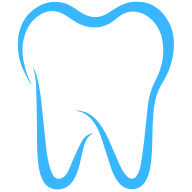Welcome to this comprehensive guide on maintaining optimal dental hygiene. We'll delve into the best practices that ensure a healthy mouth and a radiant smile. From brushing techniques to the role of diet, we'll explore various facets of dental care. This blog aims to provide you with a roadmap to excellent oral health, so let's get started!
The Art of Brushing
Brushing your teeth is a fundamental part of dental hygiene. However, the way you brush matters significantly. A hasty, careless brush won't do much good. Instead, take your time and brush gently in a circular motion. This technique helps in removing plaque effectively.
Remember to brush at least twice a day. Morning and night routines are crucial. They prevent the buildup of bacteria that can lead to tooth decay and bad breath.
Don't forget to replace your toothbrush every three to four months. Frayed bristles won't clean your teeth properly. Moreover, bacteria can accumulate on an old toothbrush, which can lead to infections.
Flossing: More than a String Thing
Flossing is an essential yet often overlooked part of dental hygiene. It reaches the crevices where your toothbrush can't. Regular flossing can prevent gum diseases and bad breath.
Floss at least once a day. The best time to floss is before bedtime. This practice ensures that your teeth are clean before you sleep, reducing the chance of overnight bacteria buildup.
While flossing, be gentle. Aggressive flossing can harm your gums. Instead, slide the floss up and down, following the curve of each tooth.
The Role of Mouthwash
Mouthwash is not a substitute for brushing or flossing. However, it complements these practices. It can reach areas that your toothbrush or floss might miss.
Mouthwash can freshen your breath and prevent the buildup of plaque. Some mouthwashes also contain fluoride, which can help prevent cavities.
Use mouthwash after brushing and flossing. Swish it around your mouth for 30 seconds, then spit it out. Avoid eating or drinking for 30 minutes after using mouthwash to let it do its job.
Diet and Dental Hygiene
Your diet plays a significant role in your dental health. Consuming too many sugary or acidic foods can lead to tooth decay.
Try to limit your intake of sugary drinks and snacks. Instead, opt for a balanced diet that includes plenty of fruits and vegetables. These foods can help keep your teeth healthy.
Drinking plenty of water is also beneficial. It can help wash away food particles and keep your mouth hydrated.
Regular Dental Check-ups
Regular dental check-ups are a crucial part of maintaining good dental hygiene. They allow your dentist to detect any potential issues early.
Aim to visit your dentist at least twice a year. These visits typically include a check-up and a professional cleaning. The latter can remove any plaque or tartar that you may have missed during your daily brushing and flossing.
The Importance of a Good Night's Sleep
A good night's sleep is essential for overall health, including dental health. Lack of sleep can weaken your immune system, making you more susceptible to oral infections.
Try to get at least seven to eight hours of sleep each night. Also, maintain good sleep hygiene. This includes keeping a regular sleep schedule and creating a comfortable sleep environment.
Summing Up Dental Hygiene Best Practices
Maintaining good dental hygiene is a lifelong commitment. It involves more than just brushing your teeth. Regular flossing, using mouthwash, eating a balanced diet, getting regular dental check-ups, and ensuring adequate sleep are all part of the equation. By following these best practices, you can keep your teeth healthy and your smile bright!

